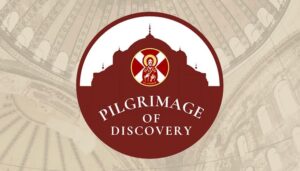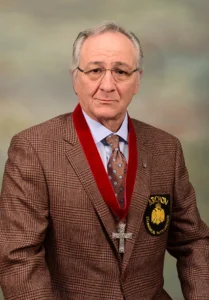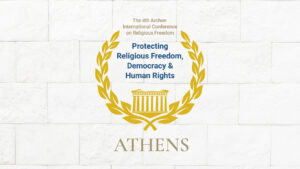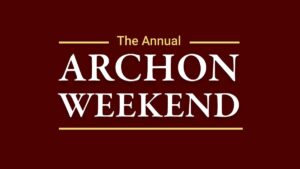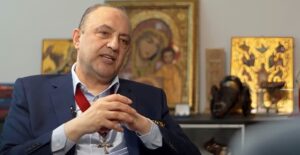The Hurriyet Daily News recently reported in its ‘Opinion’ section on ‘De-crucifying Turkey’s Christians’
The Hurriyet Daily News is the oldest current English-language daily in Turkey.
The published article can be read in its entirety below.
De-crucifying Turkey’s Christians
By Mustafa Akyol
8/17/2010
Read this article on the website of the Hurriyet Daily News
A little more than a year ago, the Ecumenical Patriarch of Constantinople, Bartholomew I, made the headlines for saying that he feels “crucified” in Turkey. Many Turks had reacted to this statement then, arguing all was just fine for the Patriarchate. But His All Holiness was right to complain, and Turkey certainly needed to take steps to advance religious freedom — such as the one it took last Sunday.
I am referring to the Christian mass celebrated in the ancient of Sumela Monastery, in northeastern Turkey, a little outside the city of Trabzon. Thousands of Orthodox Christians from Russia, Greece, Georgia and the United States joined the historic worship, led by Bartholomew I himself. “Those who believe in Christ are celebrating today,” said the 70-year-old patriarch. “Now is a great moment for the church of Constantinople.”
Enter 1922
It was such a great moment, for the Sumela Monastery had been closed to worship for a long time. The ecumenical patriarch marked the exact date, by noting, “after 88 years of lethargy we can all celebrate together.”
But what had exactly happened 88 years ago, in 1922?
Well, that was the year that the Ottoman monarchy, the protectorate of the Ecumenical Patriarchate since the mid-15th century, was abolished by Mustafa Kemal, Turkey’s new leader. It was also the year of the Treaty of Lausanne that Turkey signed with the British to define the borders and the tenets of the Republican regime that would be announced a year later.
One of the clauses of the treaty was about a “population exchange” with Greece. Accordingly, with the exception of Istanbul and Western Thrace, Greeks in Turkey and Turks in Greece would be “replaced” with each other. Trabzon (then “Trebizond”) was one of the settings for this enforced exodus. British journalist Bruce Clark explores this little-known history in his excellent book, “Twice A Stranger: How Mass Expulsion Forged Modern Greece and Turkey.” In early January 1923, Clark notes, “most of the Orthodox Christian families who still lived in
That’s how the diverse Trebizond suddenly became the all-Turkish Trabzon — a background which might perhaps partly explain why the city has been a notorious crucible of nationalism. Consequently, Christian sanctuaries were deserted, and the most important of them, the Sumela Monastery, was soon converted into a “museum.”
As a believer in religious freedom and diversity, I feel certainly sad about this tragic end to the Greek Orthodox presence in Trabzon, and, actually, all of Anatolia. But I can also understand it, for it was a reaction to the invasion of Western Anatolia in 1919 by Greece, against which Turkey waged its perilous War of Liberation. That was a time of crisis, which replaced six-century-old Ottoman pluralism with nationalist monism.
What I don’t understand, though, is the dogmatic preservation of that phobia of the Greeks, and other Christians, to date. Their situation should have gone better, whereas it got only worse throughout the 20th century. In 1971, the Greek Orthodox seminary on the island of Heybeliada (Halki) was closed down by the military-dominated government of the time. In the 1990s, Turkish nationalists, official or civil, even started to lash out against the “ecumenical” title of Patriarchate, saying that it implies a “universal” authority, which surpasses that of the Turkish state. (Whereas the Patriarchate’s title should be nobody’s business except the Patriarchate itself.)
Ottoman wisdom
Today, what is ironic is the nature of the opposing camps on the Turkish side: Those who keep fueling paranoia against the Christians are often the secular nationalists, who take inspiration from the arch-secularist Mustafa Kemal. Those who are more tolerant on this matter are often the so-called “Islamists,” who take inspiration from the Islamic Ottoman Empire.
I called this “ironic,” but maybe it isn’t. History, after all, shows that the Ecumenical Patriarchate had the darkest of its times during the Kemalist Republic. On the other hand, both the pre-Kemalist Ottoman centuries, and the emerging post-Kemalist future, look much brighter.
For a careful eye, that was evident in Bartholomew I’s address at Sumela. He blessed “the souls of the Ottoman sultans,” who “over the centuries helped the monastery of Our Lady.” And he expressed gratitude to “the courtesy of the Turkish government,” which is, as you know, run by the “Islamist” party of Prime Minister Tayyip Erdogan.
The next day, Erdogan took another good step, by publicly supporting the Patriarchate, blaming its opponents for paranoia, and praising religious freedom. He also advised the nationalists to “open up Ottoman history and read.”
Good job. But Erdogan should not confine himself with Sumela, and move on to solve other problems of Turkey’s Christians, beginning with the re-opening of the Halki Seminary.
He should, in other words, de-crucify all the followers of Christ in this country. They have suffered enough.


